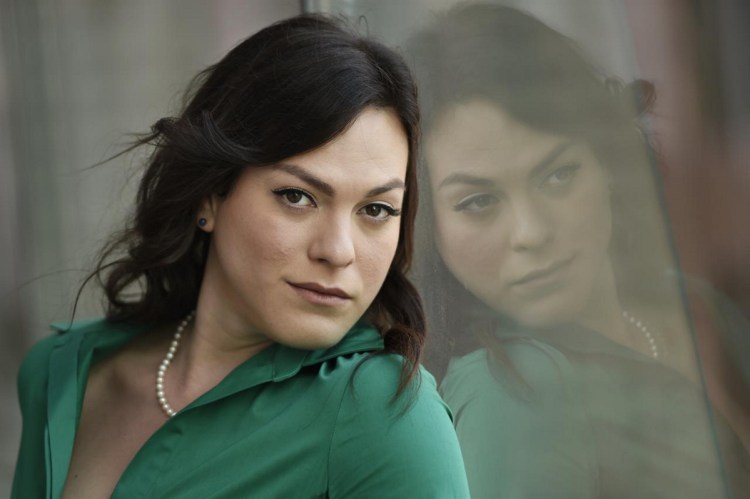Sebastián Lelio’s Oscar winning 2018 foreign film, “A Fantastic Woman,” opens in a cafe in Santiago, Chile, where a handsome, aging businessman, Orlando (Francisco Reyes) orders a musical birthday cake for his lover, a much younger Marina Vidal (Daniela Vega), who works as a waitress and singer.
Then after celebrating her birthday, they go back to the apartment they have been sharing for some time with Orlando’s dog. This could be the beginning of a simple love affair, a mystery or family drama. It is all of those things, and much more.
In the night, Orlando awakens feeling unwell, then when it worsens, Marina hustles him into his clothes to get him to a hospital. While she goes back for his car keys, he falls down the first flight of stairs, injuring himself.
At the hospital, covered with bruises and a wound to the head, he is taken from her by doctors.
They will come to her an hour later with his belongings. Orlando is dead, and one inquisitor after another, a nurse, the doctor and police officer, are suspicious of his wounds.
She is questioned by the policeman, who, when he looks at her papers, turns cold, and addresses her as “Sir.”
It’s clear now that our lovely Marina is a transgender woman, who has for a long time, floated in the “normal” world successfully, without incident.
From this moment on, we will watch Marina become an “object,” a human being with a heart and a life, taken apart piece by piece. She will be jolted out of the calm wind of love with Orlando, tossed about like an empty milk carton and kicked from place to place.
Soon, all the soft curtains that surrounded her will be torn away. A female detective, from the Chilean Sexual Offenses Unit, (Amparo Noguera) will attach herself to Marina’s life. She will be gentle and understanding in a very professional way simply doing her job, but when Marina fails to show up for more talks, she hardens.
Another family member will suddenly appear and give Marina notice to vacate the apartment she shared with Orlando and even worse, take Orlando’s beloved dog.
This is where the bitter wind of discrimination, hate and anger grow stronger and darker to reveal the world Marina has been trying to avoid.
Reality now splashes across her days like the big, ugly, brightly colored graffiti that follow her, as without a car, she walks away the days and nights, filled with metaphorical hurricane wind and yellow back-lighted rain.
Director-writer Sebastián Lelio gives neither Marina nor us an inch of relief, and very little hope that life will brighten anytime soon for this woman, even as she keeps moving forward.
With each moment, from the tender to the torturous, Lelio puts us right beside her, and with great beauty and skill, forces us to feel her pain and injustice. It’s a hard journey to share.
There is one final scene at the close that offers a tiny shard of light in all of the darkness, as Marina finally stands on a concert stage for her debut as a singer. But it’s too little, too late.
Daniela Vega, an actress and lyrical singer, and the first openly transgender person to win Mexico’s Fenix film award, and now sharing the Oscar, gives us a real human being structured with dignity and defiance, eyes ablaze and fists clenched for combat. Bravo.
J.P. Devine, of Waterville, is a former stage and film actor.
Send questions/comments to the editors.



